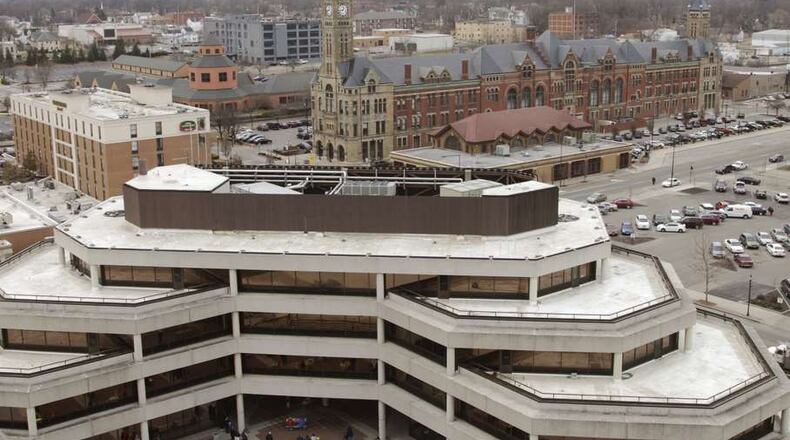RELATED: Complete Clark County election results
If the levy ultimately fails, up to 35 employees could be laid off, including 25 from City Hall and 10 civilian workers at the police division who would be replaced by removing officers from the streets, City Manager Jim Bodenmiller said. He intends to finalize plans for possible staff reductions at the end of February or early March.
“I want to be strategic about it in a way that has the least impact,” Bodenmiller said. “We have a great bunch of employees at the city. It hurts more than I can say to have to make some of the decisions we’re going to have to make.”
The city also plans to move forward with the closure of Fire Station No. 5 and the police community substation on Jan. 1 due to staffing issues, Bodenmiller said, as well as overtime cuts for both the remainder of this year and next year.
“We have to plan ahead for those locations,” he said.
Possible cuts will also be discussed during the Springfield city commissioners annual budget meetings at 6 p.m. Nov. 15 and 16 at the City Hall Forum conference room, 76 E. High St.
“I’m very hopeful that once all the votes are counted that we may still be successful,” Bodenmiller said. “Fifty-five votes is not a lot of ground to make up. We have to plan to move forward on the possibility that it will not pass.”
The income tax hike would have generated $6.7 million annually. For a worker making $30,000 a year, the tax would cost an additional $9.75 per month.
PRIOR COVERAGE: Springfield to ask voters for tax increase in November
The city projects it will collect about $37.9 million in general fund revenues this year, including about $28.9 million in income taxes. But it also estimates it will spend about $38.9 million, which leaves it facing a $930,000 deficit.
About 75 percent of the city’s budget is made up of safety services, including police officers, firefighters, dispatchers and the municipal court.
The new money was expected to replace recent cuts to state funding and to maintain current services. An additional $2 million would have gone toward road improvements and a Safe Streets Task Force, a special police unit to combat violent crime and heroin abuse.
The money was also to be used to rebuild the city’s dwindling reserves. At the end of last year, the city’s rainy day funds stood at about $2.3 million or 6 percent of its total budget. With the projected deficit this year, those reserves are expected to fall to about $1.4 million.
MORE DETAILS: Audit says Springfield needs income tax hike, must study consolidation
The city currently has about 560 employees. In the past 10 years, the city has cut about 140 positions, officials said.
Opponents of the levy said it would have put too much of a burden on residents and hurt the city’s economy.
“As the population of the city has contracted, it makes sense to have more consolidated services,” said Dan Harkins, treasurer of Citizens for Responsible Springfield City Government, a group that campaigned against the income tax.
The city should focus on growing the economy to increase revenue, he said, not raising taxes.
The Clark County Board of Elections will meet Nov. 26 to vote on the acceptance of provisional ballots and then reconvene for the official count on Nov. 29, Board of Elections Director Jason Baker said.
Most provisional ballots were cast in person, Harkins said. Of the ballots counted in person on Tuesday, the levy failed by about 400 votes. If the provisional ballots keep with this trend, he believes the issue will likely fail.
But often voters who cast provisional or early voting ballots are more open to new taxes, Wittenberg Political Science Professor Rob Baker said, so it could go the other way.
Many new tax levies failed in Clark County on Tuesday, including a Clark-Shawnee Local Schools bond to build a new elementary school and renovate the high school, and a levy in Springfield Twp. for road repairs.
It’s always difficult to pass a new levy, Mayor Warren Copeland said.
“It’s hard, people do not want new taxes,” Copeland said.
Baker agreed.
“A lot of people on fixed incomes … asking them to pay more is difficult because of the economic shocks they’ve experienced in this part of the country,” Baker said.
But Copeland is hopeful it could pass in the future. It may be on the ballot again in May, he said, but he’s not sure if the city would consider lowering the millage.
“We thought this through well,” he said, “and I think it still makes sense.”
By the numbers
2 percent: Current income tax rate
2.4 percent: Proposed income tax rate
$6.7 million: Revenue the income tax increase would have raised per year if approved by voters

